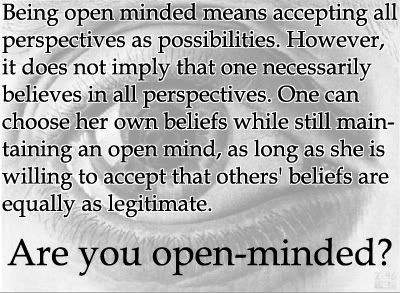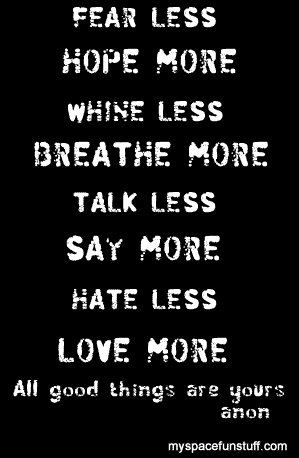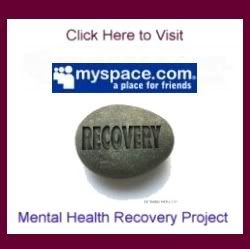If I was to write a self-help book, it would go something like this:
You're fine. Stop thinking you're not. The end.
Now, I'm just guessing here, but I'm pretty sure this book wouldn't be a best-seller, or even sell at all. People buy self-help books because they think something is wrong with them. Telling them otherwise would conflict with their core belief that they're damaged, and they wouldn't believe it.
So many self-help books give readers what they want. This is the rub because people buy self-help books to find help. But they also want explanation and validation. They want to know the age-old question of "Why?" Why did this happen to me? Why am I like this? Why did my life turn out so horrible?
Thus, many self-help books follow a formula. They begin with "education" that explains the "why" behind symptoms and behaviors. They detail nature and nurture because everything we do has roots in our biology, environment and upbringing.
Take weight loss. Many of the current diet books will talk about how carbs just destroy you. You eat them, your blood sugar spikes, you get fat. So you read this, avoid carbs, and find out it's not easy (because your body needs carbs too). Eventually, you end up downing 5 donuts, remember how bad this is, then mentally beat yourself up. This opens the door for more emotional eating, and you seek out comfort foods which are, you guessed it, carbs. Carbs help balance your serotonin levels. Serotonin is the brain chemical that many anti-depressants target (eg. Prozac, Paxil, Zoloft). This is why we reach for cheesecake and mashed potatoes for comfort instead of just gnawing on a steak.
Then there's Schizophrenia. The main "education" given here is that it's a "brain disease." Translation: Sorry, but your brain, that thing in charge of everything you do, is messed-up. Good luck with that. (Oh, and don't forget to take your meds, no matter how crappy they make you feel.)
And trauma symptoms or PTSD (Post Traumatic Stress Disorder). People experiencing flashbacks and painful memories are "educated" on why events in their past are coming back to haunt them....and haunt them and haunt them. Then, there's explanation about how the brain has "trapped" these horrible memories and shoots them into awareness any time it senses a "trigger" (smells, sounds, sights, thoughts, feelings.) So if you were abused by someone with blonde hair, you could have a flashback every time you see someone with blonde hair. Have fun at the grocery store.
So the main problem here is that "education" can also reinforce the "you're-damaged" belief. After all, you can't change your biology, environment, or the past. And discovering this information might cause you to feel like a prisoner, stuck with something that isn't working for you, but also can't be changed.
So if it's so bad, why include the "education" piece at all? Because human beings want to know "why." This isn't a personality flaw - it's an innate tendency. This is why 3 year-olds spew an exhaustive list of "why" questions. As soon as we're old enough to navigate the world, we become naturally curious about what makes it tick. It's this curiosity that has kept the species alive. After all, if human beings never asked why crocodiles eat people, they'd never learn to stay away from them.
So am I saying you should stay away from self-help books? Only if you want to. But many self-help books do have valuable information, provided you're not so defeated by the "education" that you can keep reading far enough to the "help" section. So here are some tips to self-help. Like anything new, it's hard to adapt to a new way of thinking, but it can be done. While in the midst of self-help, try to continually remind yourself of this:
1) For every limitation you have, you also have a strength. Your brain is wired to compensate for weak areas. Blind people have a much better sense of smell and touch than a non-blind person. And someone who's survived abuse or war has extraordinary personal strength. You've heard the proverbial story of the little old lady whose husband did everything for her. When he died, she suddenly found herself 70 years old and learning how to balance a checkbook and having to shovel snow. The "easy life" is nice, but it doesn't help you develop problem-solving skills. And life is full of problems.
2) There comes a time when we have to stop with the self-improvement. In other words, you will never, ever, ever reach perfection. Instead, strive for "good enough" because that's all you can be. Think about the last time you got a flat tire. You didn't stand on the roadside, contemplating why the tire went flat and how the tire could be made better so it never, ever, ever goes flat again. If you did this, you'd still be standing on the side of the road while all the other cars passed you by, driven by people who were living their lives.
3) Remember that you're always doing the best you can. Human beings are hard-wired to do their best in each moment. If they didn't, they'd die. You might not be functioning the way you want to, but you're still trying. You're still searching. You're still surviving. You haven't given up yet. Give yourself credit for that.
Deep down, there's nothing horribly wrong with you. If you were completely damaged, you'd be dead (or really close to it). And if you were perfect, you'd be really bored (and people would hate you.) Constantly thinking you're "damaged goods" is going to make you feel weak, helpless and hopeless. And it will prevent you from fixing the things in life you can truly fix.









No comments:
Post a Comment